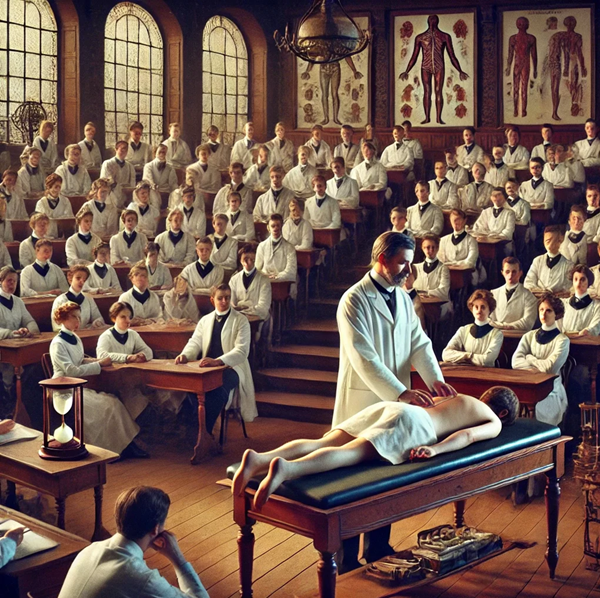Alternative Medicine For Sleep Disorders
As you have probably discovered if you suffer from a sleep disorder, you are not alone. In fact 40 million Americans have reported suffering from some type of sleep disorder. Furthermore, there are various types of sleep disorders – ranging from sleep apnea to insomnia – and each should be treated differently.
Many who suffer from sleep disorders are turning to complementary health approaches to help them get a more restful night’s sleep using more natural therapies, especially, as opposed to addictive prescription sleeping pills.
What’s the Bottom Line?
What do we know about the usefulness of complementary approaches for sleep disorders?
When talking about complementary health approaches to help patients get a more restful night’s sleep, the following methods are almost always brought up and their usefulness is brought into question:
Relaxation techniques – Insomnia
Melatonin Supplements – Shift Work/ Jet Lag
These are the two most sought after techniques; however, the full measure of their effectiveness is still under review.
What do we know about the safety of complementary approaches for sleep disorders?
As with all therapies, techniques, medicines and supplements, safety is and should be a factor in determining whether or not the usefulness outweighs the hazards associated with the practice in question.
As far as the methods discussed above, let’s take a look and see what kinds of safety health hazards they pose and whether or not these hazards are great enough to outweigh the benefits.
Relaxation techniques are considered as generally safe practices for treating insomnia and other sleep disorders.
Melatonin has not been found to create any negative affects short-term, but has yet to be studied for its long term effects.
Kava and L-tryptophan supplements have both shown highly negative side-effects (severe liver damage and eosinophilia-myalgia syndrome respectively). Additionally, they have not been proven to improve sleep.
As with all medications, supplements, and therapies; a consultation with your doctor is recommended.
What the Science Says About Complementary Health Approaches and Insomnia
Scientists say that most of the studied complementary health approaches appear to be safe. Relaxation techniques can be found among the top in safety and effectiveness.
Studies have also been conducted on women, post menopause, suffering from insomnia, and one of the most effective techniques for decreasing this disorder was found to be yoga – a form of meditation and relaxation.
Massage therapy was another highly effective technique – involved with relaxation, meditation and stress relief.
Acupuncture And Hypnosis
Other less-studied techniques, such as hypnotherapy and acupuncture have had less promising results. Hypnosis is said to enhance effectiveness of cognitive-behavioral therapy and relaxation techniques and not enough studies have been done on the effects of acupuncture to determine any positive results when tested on insomniac patients.
Dietary Supplements and Herbs
As discussed earlier, Melatonin supplements are the most researched method for treatment of insomnia.
Probably one of the most studied of the complementary health approaches, insomnia has been through 19 studies in 2013 alone, which concluded that insomnia patients who took melatonin supplements tended to fall asleep quicker, stay asleep longer and receive a better night’s rest.
However, unfortunately, even though the data here is promising, Melatonin still performed significantly lower than other sleep aids.
Herbs have also been tested – the most popular herbal sleep aids are found listed below:
• Valerian Root
• Chamomile
• Kava
• Hops
• Lemon Balm
• Passionflower
• 5-HTP
• Herbal studies on people, however are still few and far between.
Other Complimentary Health Approaches:
Aromatherapy
Probably the most widely known approach, other than herbs, and medications is Aromatherapy. Even though it is widely used, not a lot of conclusive evidence has been found that shows Aromatherapy to be an effective sleep aid.
Additionally, doctors and scientists alike warn that tiredness throughout the day and trouble sleeping does not always mean you have a sleep disorder. They counsel to go to bed early, rise with the sun, and get the prescribed hours of sleep for your age and health. If you don’t know the recommended amount of sleep – charts can be found online, or you can check with your doctor.
Talk To Your Doctor
More important than almost any of the studies or techniques is speaking with a physician before starting on any treatment on your own. You should discuss with your health care provider the method you are planning on trying, and remember – don’t be afraid to ask questions, talk about concerns and discuss your viable options.
Most importantly, while the methods discussed are all-natural, all-natural does not always mean healthy.
Another thing to keep in mind when trying these natural, complementary methods, is combining techniques.
Combination of herbs, supplements and other over-the-counter medications should definitely be discussed with a physician for your health and safety.
